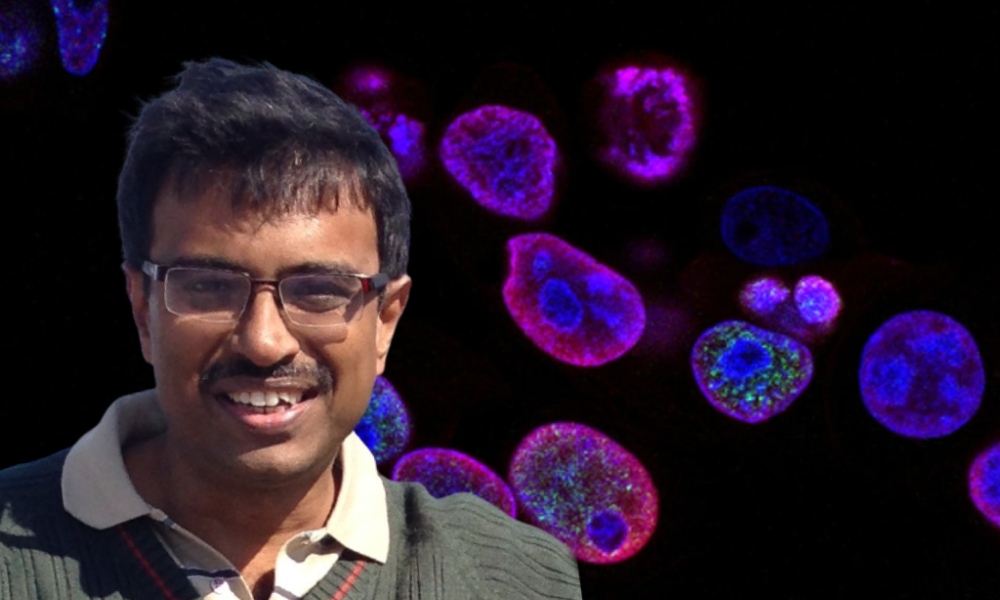Indian Scientist Finds Way To Detect Colon Cancer As Easily As Diabetes
Writer: Anuran Sadhu
A post grad journalism student of SIMC, Pune with a passion for using words to get my message across in the most unique ways possible and curiosity is the force that drives me to learn and experience more every day.
India, 10 Aug 2021 10:12 AM GMT | Updated 10 Aug 2021 10:17 AM GMT
Editor : Ankita Singh |
A literature lover who likes delving deeper into a wide range of societal issues and expresses her opinions about the same. Keeps looking for best-read recommendations while enjoying her coffee and tea.
Creatives : Ankita Singh
A literature lover who likes delving deeper into a wide range of societal issues and expresses her opinions about the same. Keeps looking for best-read recommendations while enjoying her coffee and tea.
As per the Indian Council of Medical Research (ICMR), colon cancer is the third-most common form of cancer in men, second-most in women.
A joint effort by four Indian medical institutes and one French institute has found a way to detect colon cancer as early as in stage one, which will ensure effective patient recovery. The collaborative study was carried out by the National Institute of Immunology, AIIMS, Regional Centre for Biotechnology, Faridabad, St John's Research Hospital, Bengaluru and University of Strasbourg, France.
As per the Indian Council of Medical Research (ICMR), colon cancer is the third most common form of cancer in men. In 2014, 6663,000 people were diagnosed with it, accounting for 10 per cent of all cancer cases, as reported by India Times. The ICMR also noted that it is the second most common form of cancer in women, with 571,000 cases reported in 2014 – accounting for 9.4 per cent of all cancer cases.
Colon Cancers Are Not Detected Easily
Colon cancer is one of the forms of cancer which are notoriously detected at a very late stage. The two techniques used to detect colon cancer effectively are CT colonography and immunohistochemistry. In CT colonography, doctors use low-dose radiation, which is invasive and uncomfortable. And the immunohistochemistry process is subjective and is non-reproducible at times.
However, the study led by Dr Sagar Sengupta from the National Institute of Immunology has found a new method to detect colon cancer in stage 1 through his lab's work on microRNAs.
The micro RNAs are small single-stranded non-coding RNA molecule that functions in RNA silencing. They are known to fuse to the mRNA or messenger RNA molecules that code for the proteins and thus either inactivate or destroy them.
Research Findings: Colon Cancer
According to the study, six microRNAs upregulated in cells with colon cancer. The levels of the microRNAs are controlled by the master regulator protein called CDX2. 'DNA damage sensitive microRNAs' or DDMS – the name given to the unregulated microRNAs, was found to target a group of cellular proteins that maintain the genetic material's original nature.
The lab mice experiment carried out by the scientists has shown that the cells tend to form cancers if the microRNAs are overexpressed, and there is a loss of the genome stabiliser.
The study findings have been verified by testing on datasets in the Cancer Genome Atlas and also in a group of colon cancer patients who had come to AIIMS, New Delhi.
The researchers have discovered that increased DDSM levels reduced the chances of a patient's survival. They also discovered that DDSMs were upregulated even in stage 1 colon cancer tissues and even in stage 4 cancers.
In a statement to India Science Wire, Dr Sengupta said that the researchers believe that the identified DDSMs can serve as an essential biomarker to detect colon cancer in the early stages. Next, they need to find out if DDSMs can be detected in the patient's blood samples. Dr Sengupta noted that if they can be detected in blood, then colon cancer detection would be as easy as detecting diabetes.
Also Read: Indian Women And Their Susceptibility To Poor Mental Health: A Rising Concern
 All section
All section














